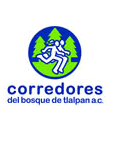Running and the Environment
RACES GO GREEN
14 ways races can reduce their environmental impact.
By Kelly Bastone
From the November 2008 issue of Runner's World
In everything from local fun runs to mega-marathons, races are setting a new standard in reducing their environmental impact. Gone are the days when events generated tons of trash for area landfills and blithely littered streets with a blizzard of plastic cups. Instead, organizers are looking hard at earth-friendly ways to tweak all aspects of race management, from registration to porta potties to finish line fun. Here's a look at how some of the more innovative North American races are changing for the better.
E-Impact
Many races encourage online registration, but it's required at Maine's TD Banknorth Beach to Beacon 10-K and South Carolina's Kiawah Island Marathon. That saves thousands of printed registration forms from going unused.
Smarter Starts
Solar-powered generators provide electricity near the start (and finish) areas in Portland, Oregon, and Austin, Texas, marathons.
Wear Your Values
Since the synthetic fabrics in many tech tees are made with harmful chemicals, races such as the Madison Marathon in Wisconsin and the Edge to Edge Marathon in British Columbia are switching to apparel made with organic cotton and bamboo.
Eco Expo
At the San Francisco Marathon, electricity used by the Health and Fitness Expo is generated by bio-fuel.
What's in the Bag?
Virginia's Yuengling Shamrock Marathon uses reusable cloth shopping bags for participant goodies, while Canada's Toronto Marathon hands out recycled plastic bags to participants.
Car Care
The John Muir Trail Run uses natural-gas-powered race shuttle buses. At the Austin Marathon, official vehicles run on bio-diesel.
Getting There Greener
Canada's Canmore Rocky Mountain Half-Marathon runs bio-fuel buses to bring runners to and from nearby Calgary. The Fort Lauderdale A1A Marathon encourages participants to coordinate carpools through pickuppal.com (one perk: VIP parking). At the Fall Cross running series in Boulder, Colorado, everyone who arrives via green transportation (such as carpool, bike, or public bus) gets a bonus prize.
Greener Garbage
The ING New York City Marathon collected and recycled all 75,890 plastic water and Gatorade jugs used along the course last year--and recycled 22,080 pounds of plastic and cardboard.
Aiding the Earth
Aid stations at the Canmore Rocky Mountain Half-Marathon use wax-less paper cups that easily biodegrade. Colorado's Mt. Werner Classic and Oregon's Willamette Valley 30-K Walk 'n' Relay will have biodegradable cups on hand, but ask runners to bring their own bottles, which they can refill along the course.
Pedal Power
North Carolina's OBX Marathon replaced pace cars with bicycles.
Going Green
Porta potties at the Austin and OBX marathons, as well as the Go! St. Louis Marathon & Family Fitness Weekend, use environmentally friendly sanitizer solution and toilet paper made with recycled content.
Earth-Friendly Eats
Florida's River, Roots, & Ruts trail run serves organic sports bars and snacks. And the Cayman Islands Marathon uses Greenware cups, which are 100 percent compostable.
A Fine Finish
Oregon's Willamette Valley 30-K Walk 'n' Relay distributes 100 percent recycled glass finishers' medals. At California's John Muir Trail Run Challenge 10-K, trophies are handmade from "green" wood certified by the Forest Stewardship Council. The Austin Marathon includes a finish-line farmers' market with organic and local food.
Recycling Races
The Re-Run Run, a 5-K in Eugene, Oregon, asks other race directors to donate their unused shirts and medals so all race proceeds can benefit The Leukemia and Lymphoma Society. The Recycled! races, presented by Calico Racing in Las Vegas, use items left over from other Calico events.
At Colorado's Fall Cross series, organizers reuse race bibs (made of nonrecyclable Tyvek) for future events.
jueves, 27 de noviembre de 2008
Suscribirse a:
Enviar comentarios (Atom)

No hay comentarios:
Publicar un comentario